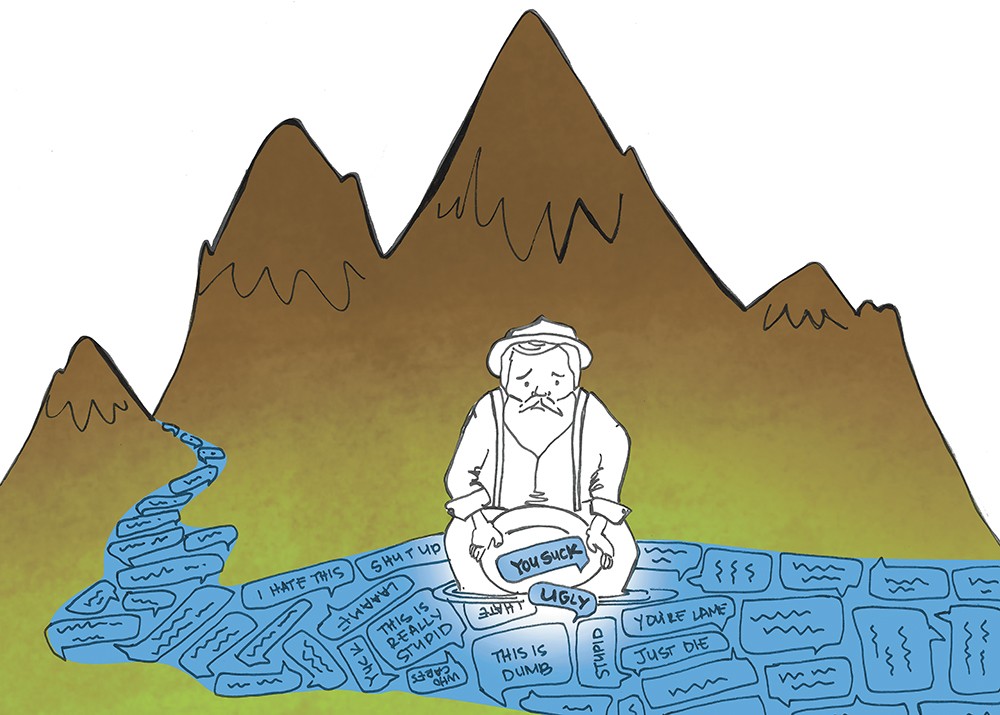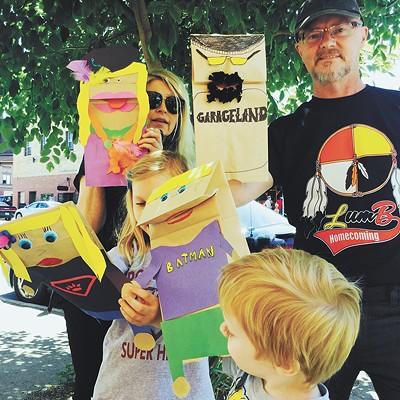Don't read the comments. So goes the warning for anyone who writes or reads on the Internet. The comments will not make you happier, we're told. They will not make you smarter. They will make you miserable, angry and a bit disgusted.
In the past few years, major websites have ditched their comment sections. Popular Science got rid of its comment section in 2013. Vox launched without a comment section last year, and this year the Daily Beast closed theirs.
I can empathize with the trend. Last month, I wrote a post about how a pastor coming to speak in the area had defended slavery and condemned interracial marriage. In response, a commenter on Facebook called me a "propaganda parrot," and alleged my job was to "deliver the red meat to the snarling Christian-hating jackals who read the propaganda from the Inlander."
The next day, after I wrote a piece examining Donald Trump's stance on vaccination, I immediately was rewarded with a comment declaring, "I think Daniel Walters should get checked for retardation."
As silly as it sounds, reading those messages feels awful. Even if you know a commenter is racist or ignorant or misguided, one night poring through Internet comments can make a sane man feel crazy.
But any decent journalist, I'd argue, has a duty to hold their nose, put on their rubber boots and wade through the sewer. Sometimes, commenters spout criticism that's deserved. Comments can spark corrections, or even better, catalyze new stories.
Amid all the crap swirling about, there are nuggets of gold. Comment sections boil with rumors and innuendo and reckless speculation. That's what makes them valuable. Raw rumor often serves as journalism's first stage, posing questions that should be asked.
Years before the Coeur d'Alene Press officially broke the fact that local activist Rachel Dolezal was lying about her race, comments in the Press and the Boise Weekly featured the same revelation. Reading the comments on articles about Dolezal last year triggered my own suspicions about her hate crime claims, causing me to file public records requests for my own investigation.
Other times, the comments themselves are newsworthy. It's unlikely that the wife of Spokane County Prosecutor Larry Haskell would have written a letter to the editor wishing for a vehicular homicide suspect to "suffer greatly at the hands of vigilante inmates." But under a pseudonym in the Spokesman-Review comment section, she felt free to make all kinds of controversial statements about blacks and Muslims.
If the Wall Street Journal didn't have a comment section, it's possible we'd never have learned that Spokane police ombudsman candidate Allen Huggins dismissed the Black Lives Matter movement as a "band of myopic rioters."
Comment sections don't have to be toxic. Carefully tended, comment sections can flourish, growing into their own ecosystems with their own unique inside jokes, pseudo-celebrities and traditions. At the A.V. Club website, comments provide reams and reams of additional analysis and insight into pop culture. Entire comment-section cities, essentially, sprang up under the season finales of Community reviews. Some of the site's best commenters, like Zack Handlen and Rowan Kaiser, were eventually promoted to head writers for the site.
But there's a value to toxicity, too. It can be easy, by choosing who we friend on Facebook, follow on Twitter or interact with in real life, to have a sense of the world as safer, or kinder, or more homogenous than it actually is. Comment sections puncture that fantasy.
It's one thing to know intellectually that there are racists, sexists and psychopaths. It's another to see them rise up and interact with you personally. When I wrote a story discussing the history of white supremacists in the region, it was one thing to read old newspaper articles. It was another to see an apparent white supremacist, in the comment section of the story, say "Hail the Order of Bruder Schweigen" and promise that, far from being destroyed, the movement had decentralized to become more difficult to infiltrate than ever.
You'll never find a more wretched hive of scum and villainy than Internet comment sections. But it's a useful reminder to understand that, yes, there can be scum, and there can be villains. And that's worth reporting. ♦


























